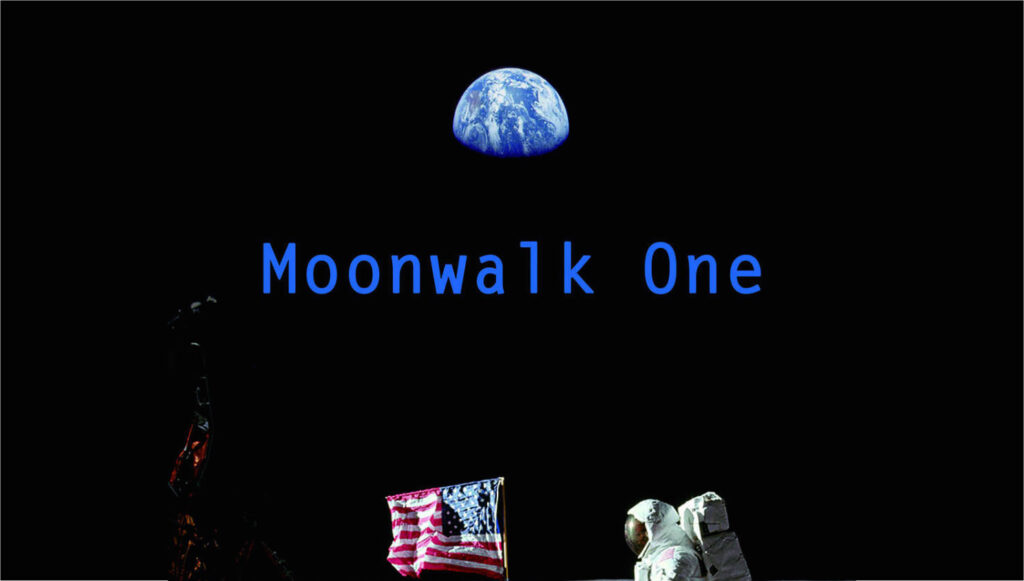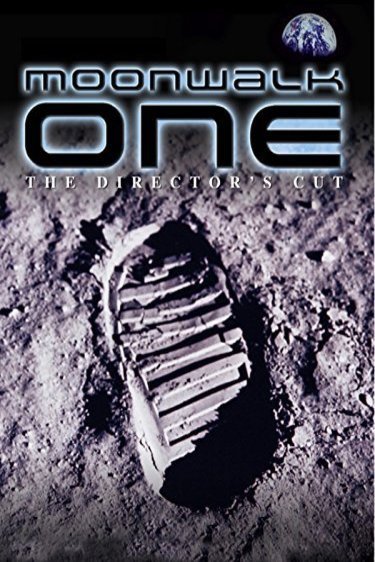From the Village Voice (December 7, 1972). – J.R.

In case you’re wondering why MOONWALK ONE,
a film produced for NASA by Francis Thompson, Inc.,
is currently showing at the Whitney Museum — rather
than, say, on CBS or Channel 13, or at the Little Carnegie
or Radio City Music Hall — I can offer a clue, if not a
definitive explanation. Feeling as intimidated as the next
layman about my ignorance concerning the moon shot, I
thought of boning up on the subject before writing this
review, and checked the neighborhood bookstores to see
what was available. Apart from [Norman] Mailer’s book
[Of a Fire on the Moon],what do you think I found in the
three fairly well-stocked shops that I visited? Absolutely nothing.
No scientific accounts, no popular treatments, no picture books,
no personal reflections. The moon landing may have been,
according to Nixon, the most important event in the history of
mankind since the birth of Christ, but apparently a lot of people
would rather read about the making of STAR TREK. (On the
other hand, if Christ had been born three years ago, I doubt that
many people would want to read about that, either.)
If people are somewhat tired of the moonwalk, this is probably
because, as with the Kennedy assassination and Nixon’s trip to
China, they’ve already seen it. Television, by inundating us with
facts and figures while something is happening, may be fast
becoming the garbage disposal unit of contemporary history.
People become obsessed, then quickly grow indifferent. By
“people,” I mean myself and most people I know; candor
compels me to admit that had I not been assigned to review
MOONWALK ONE, I probably wouldn’t have seen it.
But I’m glad that I did. However exciting, awesome, and
eerie the moon shot was on television, seeing it on a movie
screen makes it more of a spectacle, and a glorious one at
that. And those who are skeptical about how interesting and
imaginative a NASA documentary is are likely to be in for some
pleasant surprises: an adventurous use of sound, a clever sense
of pacing, and an occasionally ironic narration. The film is not
quite a “personal” work, but it is close enough to frustrate you
for not being more of one.
The footage of the takeoff of Apollo 11 is one of the most
beautiful things I’ve ever seen, in the movies or elsewhere.
It is so beautiful, in fact, that it can make one forget that it
is Apollo 11, or that it’s going to the moon, or that one is
watching it on a screen. After a heady dose of this, the
director, Theo Kamecke, cuts to the spectators below gaping
up at the ascent. As he explains in the program notes, he is
interested in “paradox” — that is, in showing the moon shot
in all its contradictions and ramifications: the homey lady
who helps to sew part of the spacesuits, clips of FLASH
GORDON and BUCK ROGERS, celebrities (Jack Benny,
LBJ) around for the takeoff, Sousa marches and majorettes
after the return to earth, quotes from skeptical citizens, and
flash references to Significant Ancestors of Spaceflight such
as Descartes, Einstein, and John F. Kennedy.
Kamecke calls this “paradox,” but one might as well call it
consensus — the samc search for the golden mean and
middle-class belly that drove Mailer into Life magazine and
Thomas Wolfe imitations. A related impulse, one suspects,
is responsible for beginning and ending the film with
Stonehenge, with the narration mulling over cosmic
mysteries: as though the moon shot were not marvelous
enough in itself and had to be hyped up with supplementary
profundities, with echoes of 2001: A SPACE ODYSSEY in
the bargain.
But the factual details of the flight and preparations are
fascinating, and easy to digest; the sequences inside the
spacecraft are spellbinding; and the moonwalk itself, as
recorded, seems to re-invent some of the beauties and
terrors of the earliest handcranked movies. If Michael
Snow had been given the assignment, we might have wound
up with something millennial. MOONWALK ONE
certainly isn’t that, but at least its better moments suggest
the possibility.


